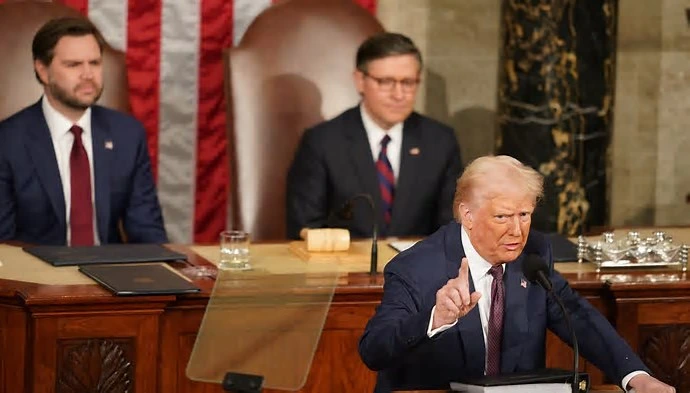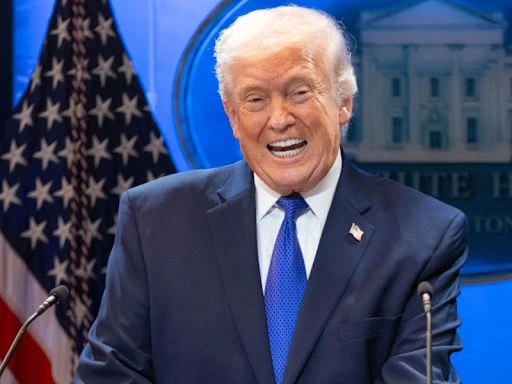12-MAY-2025,02:50 PM Saima Wazed, a prominent mental health expert and WHO Goodwill Ambassador for Autism in South-East Asia, has called for global action to make walking and cycling safer for everyone. Speaking during the 8th United Nations Global Road Safety Week, Wazed emphasized the need for inclusive and sustainable urban infrastructure that protects vulnerable road users such as pedestrians and cyclists.
Her appeal aligns with this year’s theme, “Rethink Mobility”, which aims to prioritize the safety of non-motorized road users and reduce traffic-related injuries and fatalities worldwide. The call comes at a time when urban congestion, road deaths, and environmental concerns are pushing governments to promote more sustainable modes of transport.
Saima Wazed Leads Call for Inclusive Road Safety Reform
Walking and Cycling Must Be Prioritized in Urban Planning
During a high-profile panel held as part of the UN Global Road Safety Week activities, Saima Wazed urged policymakers, urban planners, and civil society to rethink traditional transportation priorities.
“Walking and cycling are the most basic, equitable, and environmentally sustainable forms of transportation. Yet, in many parts of the world, they remain unsafe,” Wazed said. She highlighted the disproportionate risk faced by children, the elderly, and people with disabilities when using roads designed primarily for motor vehicles.
Wazed’s statement was supported by data from the World Health Organization, which notes that over 1.3 million people die annually in road traffic crashes, with a significant number being pedestrians and cyclists.
8th UN Global Road Safety Week Highlights Urgency of Change
Saima Wazed Stresses Policy Shifts to Prevent Road Deaths
The 8th UN Global Road Safety Week, observed from May 6–12, 2025, has brought together stakeholders across countries to explore ways of making streets safer. Saima Wazed, participating as a keynote speaker, drew attention to the social and public health consequences of unsafe road design.
“Beyond the statistics are real families, communities, and futures lost to preventable road crashes,” she said. “We must implement people-centered policies that put safety, accessibility, and sustainability at the forefront.”
She further encouraged national governments to invest in proper sidewalks, protected bike lanes, and traffic-calming measures such as speed limits and pedestrian-only zones. According to Wazed, the benefits of such reforms go far beyond road safety—they also include reductions in pollution, healthier populations, and more resilient urban environments.
Saima Wazed Connects Road Safety to Mental Health and Disability Rights
A Holistic Perspective on Transportation Equity
As an advocate for mental health and the rights of persons with disabilities, Saima Wazed provided a nuanced take on the broader impacts of unsafe transportation.
She explained how inaccessible or unsafe walking and cycling environments can lead to social isolation, anxiety, and stress—especially among marginalized groups. “We often overlook the invisible consequences of poor road infrastructure,” Wazed noted. “When people feel unsafe walking to school, work, or the local store, it affects their emotional well-being and quality of life.”
By making cities walkable and bike-friendly, we not only prevent accidents but also foster inclusion and mental wellness, she argued.
Global Leaders Echo Saima Wazed’s Road Safety Appeal
Support Grows for a Global Commitment to Safer Streets
Following Saima Wazed’s address, multiple representatives from international agencies, including the UN and World Bank, voiced support for her call to action. There was consensus on the need to shift away from car-centric urban development towards people-first infrastructure.
The UN’s Envoy on Road Safety, Jean Todt, stated, “We must ensure that voices like Saima Wazed’s, which champion inclusion, equity, and safety, are central to our global road safety movement.”
Countries like Sweden, the Netherlands, and Colombia shared best practices during the event, showcasing how reduced speed zones, pedestrian bridges, and cycling education have saved lives and transformed cities.
Public Engagement: Saima Wazed Urges Youth to Take the Lead
Youth and Civil Society Vital to Driving Change
Another important message from Saima Wazed during the Global Road Safety Week was the need to involve young people in shaping the future of mobility. She encouraged students, cyclists, and local communities to participate in awareness campaigns and engage with local governments.
“Change does not only begin in policy rooms—it begins on our streets, in our neighborhoods,” she said. “The youth of today are the road users and leaders of tomorrow. Their advocacy can change the course of history.”
In line with her remarks, numerous community bike rides, pedestrian parades, and educational workshops were organized globally to spread awareness of pedestrian rights and road safety.
Saima Wazed Recommends Multi-Sector Collaboration
Government, Health, Urban Development Must Work Together
Highlighting the multi-dimensional nature of road safety, Saima Wazed emphasized the importance of collaboration across sectors. “This is not only a transportation issue. It’s a public health, environmental, and equity issue,” she said.
She suggested creating national road safety councils that include ministries of health, education, transport, and disability affairs. Only through integrated efforts, she said, can countries develop comprehensive strategies that promote safe, inclusive, and sustainable mobility.
Conclusion: A Global Wake-Up Call Led by Saima Wazed
The powerful messages from Saima Wazed during the 8th UN Global Road Safety Week have served as a wake-up call for both policymakers and the public. Her insistence on safer walking and cycling environments—grounded in empathy, data, and inclusive values—has made a lasting impression.
With more countries now acknowledging the critical need to rethink their mobility systems, Wazed’s advocacy is helping shift the global narrative towards a future where roads are safe for everyone—not just cars.
As the world moves forward with the Sustainable Development Goals (SDGs), especially Goal 11 (Sustainable Cities and Communities), Saima Wazed’s vision stands as a beacon of what is possible when human lives are prioritized over convenience.
Source : ANI





